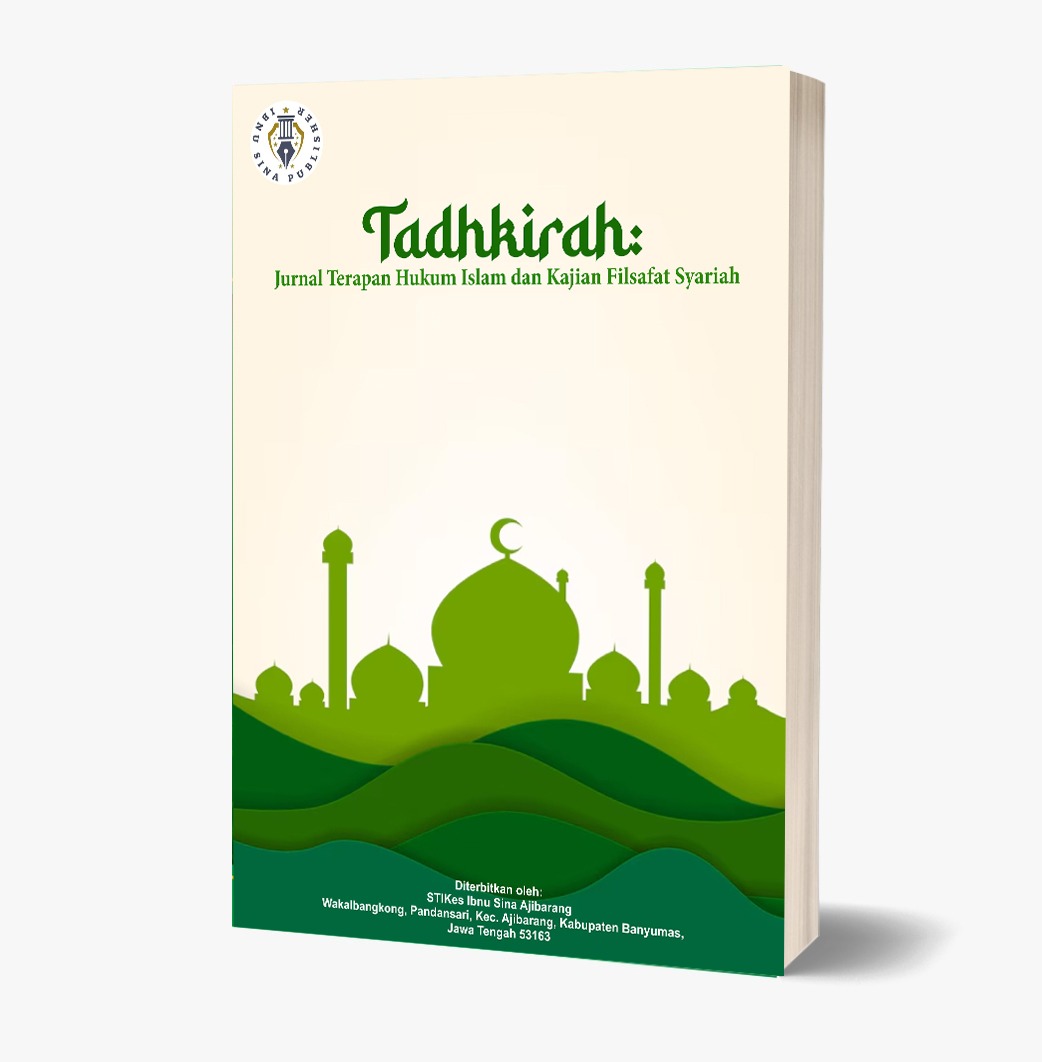Implikasi Pernikahan Dini terhadap Kesejahteraan Anak di Kecamatan Jambi Luar Kota Perspektif Maqashid Syariah
DOI:
https://doi.org/10.59841/tadhkirah.v2i2.138Keywords:
Child Welfare, Early Marriage, Family Law, Islamic Law, Maqashid ShariaAbstract
The practice of early marriage persists as a significant societal controversy. Early marriage frequently results in adverse consequences for both the individuals involved and the children subsequently born. Children originating from such unions exhibit an elevated risk of encountering health and developmental challenges, which serve as principal indicators of child well-being. This research endeavors to analyze early marriage and its implications for child welfare through the lens of Family Law. The study aims to contribute novel insights and augment intellectual discourse concerning early marriage and its effects on child welfare. Furthermore, this research ascertains the congruence between the practice of early marriage and the principles of Islamic Sharia pertaining to child welfare. The methodology employed is empirical juridical research utilizing a qualitative approach, incorporating in-depth interviews conducted within the Jambi Luar Kota District. Data collection involved primary and secondary sources, gathered via observation, interviews, and documentation techniques. The study yielded three primary findings: (1) Influential factors contributing to early marriage in the Jambi Luar Kota District encompass: pregnancies compelling marriage, the educational backgrounds of the individuals entering early marriage and their respective parents, personal volition or familial influence and economic circumstances. (2) The repercussions of early marriage within the Jambi Luar Kota District for children include heightened vulnerability to diverse health and social issues, low birth weight, birth-related injuries, growth and developmental impediments such as stunting, and inadequate parental attention leading to hindered cognitive development. (3) From the perspective of Islamic family law, the principles of maqashid sharia demonstrate substantial relevance to child welfare. An ideal marriage necessitates physical, mental, and social preparedness, predicated on the virtuous intention of establishing a family characterized by tranquility (sakinah), affection (mawaddah), and compassion (rahmah).
Downloads
References
Abdurrahman, Z. (2020). Teori Maqashid Al-Syatibi dan kaitannya dengan kebutuhan dasar manusia menurut Abraham Maslow. Jurnal AL-FIKR, 22(1). https://journal.uin-alauddin.ac.id/index.php/alfikr/article/view/15534/9250
Achrory, S. I. (2018). Fenomena pernikahan dini dalam perspektif Islam (Studi kasus di Desa Kalikuning). Jurnal Penelitian Keislaman, 14(2).
Astuti, M., dkk. (2013). Kebijakan dan perlindungan anak: Studi kasus evaluasi program kesejahteraan sosial anak (PKSA) di Provinsi DKI Jakarta, DI Yogyakarta dan Provinsi Aceh. Jakarta: P3KS Press.
Athiyyah, J. (2003). Naḥwa tafīl maqashid asy-syaria. Damaskus: Dar al-Fikr.
Bensuil, A. P. (2015). Perlindungan hak asasi manusia (HAM) dan perundang-undangan pidana terhadap perdagangan (trafficking) anak. Jurnal Lex Crimen, 4(5).
Darwan, P. (2023). Hukum anak Indonesia (Vol. 2). Bandung: PT. Citra Aditya Bakti.
Djam’an, S., & Komariah, A. (2014). Metodologi penelitian kualitatif. Bandung: Alfabeta.
Izzuddin. (2022). Nikah di bawah umur menurut pandangan masyarakat Desa Wonorejo Kecamatan Kedungjajang Kabupaten Lumajang (Tesis, Universitas Islam Negeri Kiai Haji Achmad Siddiq Jember).
Lestari, R. T. (2022). Dispensasi perkawinan anak di bawah umur menurut UU Perkawinan dengan al-Maqasyid Syariah. Jurnal Riset Ilmu Hukum, 2(1). https://doi.org/10.29313/jrih.v2i1.655
Monadiyan, N. E., & Sitorus, J. R. H. (2019). Pengaruh modal sosial orang tua dan karakteristik keluarga terhadap kesejahteraan anak subjektif tahun 2019: Studi kasus di RW 14 Kelurahan Bidaracina, Kota Jakarta Timur. Seminar Nasional Official Statistics 2019, 1, 493–502. https://doi.org/10.34123/semnasoffstat.v2019i1.113
Musyafah, A. A. (2020). Perkawinan dalam perspektif filosofis hukum Islam. Jurnal Crepido, 2(2), 111–122. https://doi.org/10.14710/CREPIDO.2.2.111-122
Ningrum, M., & Retnowulandari, W. (2023). Kesejahteraan anak atas meningkatnya kasus pengajuan dispensasi nikah di Desa Cikawung Kecamatan Terisi Kabupaten Indramayu. Reformasi Hukum Trisakti, 5(4).
Sari, N. A. T. N., & Sari, N. P. (2022). Analisis faktor penyebab dan dampak pernikahan usia dini. Jurnal Ilmiah Permas: Jurnal Ilmiah STIKES Kendari, 12(2).
Sofiana, U. (2013). Komparasi hukum Islam dengan UU No. 4 Tahun 1979 tentang hak anak. Jurnal Hukum Islam, 12(1).
Syifa, N. A., Noor, T., & Mustofa, T. (2022). Persepsi masyarakat terhadap hukum pernikahan dini dan dampaknya di Kecamatan Teluk Jambe Timur Karawang. Jurnal Penelitian dan Pemikiran Islam, 10(4).
Toriquddin, M. (2014). Teori Maqashid al-Syariah perspektif al-Syathibi. Jurnal Syariah dan Hukum, 6(1).

















